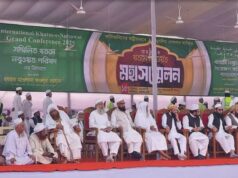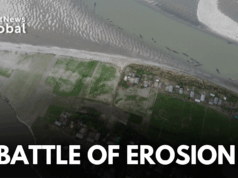“There was a point in time when Bhutan was actually a part of India, and it was only in 1949 that Bhutan got its own independent identity. And at that time a treaty was signed, between the government of Jawaharlal Nehru and the Bhutanese dynasty and that treaty formalized the kind of very unique relationship (we have).”
As deputy national security adviser, Pankaj Saran had occasion to deal with Bhutan, and as he notes, “It was not a protectorate but it was certainly lacking in 100% sovereignty, as we currently understand it.”
Nevertheless, then as now, Bhutan has remained very central to India’s northeast policy, for reasons of history, culture and of course geography. It is the reason why Prime Minister Modi was there, making it his fourth visit although it coincided with the birthday celebrations of the King Jigme Khesar Namgyel Wangchuk
This Himalayan kingdom is sandwiched between Tibet (China) in the north and west (Chumbi Valley), then the tri-junction with India and Tibet (China) and in the northeast another tri-junction with India and Tibet (China).
Both tri-junctions remain unsettled, China claims Bhutanese territory and negotiations are currently underway to try and resolve them. For India, it is vital that Bhutan remains independent and free of Chinese influence.
It is not a “buffer state” in Ambassador Saran’s view, since it is too small and fragile, but geographically it looks down on the Siliguri Corridor that links mainland India to the northest. Therefore Bhutan’s security is India’s security.
He acknowledged Bhutan’s heavy dependence on India and therefore the sentiment among some Bhutanese to diversify away from India.
“That is earlier said than done,” Saran said, “because even today they have very few diplomatic relations and there are hardly any embassies based in Thimphu, almost all the non-resident embassies are in Delhi. Some of that over dependence is inevitable because of geography.”
Tune in for more in this conversation with Pankaj Saran, former deputy national security adviser and ambassador to Russia.
Thirty eight years in journalism, widely travelled, history buff with a preference for Old Monk Rum. Current interest/focus spans China, Technology and Trade. Recent reads: Steven Colls Directorate S and Alexander Frater's Chasing the Monsoon. Netflix/Prime video junkie. Loves animal videos on Facebook. Reluctant tweeter.




